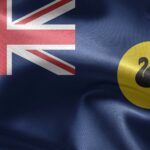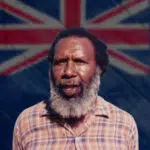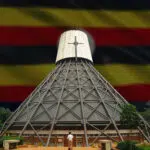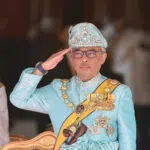Mabo Day is celebrated on June 3, the date that the High Court of Australia made the Mabo Decision. This holiday is one of great significance in Australia, particularly among the Torres Strait Islander people. Mabo Day is named after Eddie Mabo, the activist who led efforts to reform rights for Indigenous Australians. Mabo Day celebrates their unique connection to the land and the legal claims that led to the Australian parliament passing the Native Title Act. Though Mabo passed away before learning the decision of his case, the results of his campaign are still celebrated by Australians today.
History of Mabo Day
On May 20, 1982, a group of Meriam plaintiffs led by Eddie Marbo filed a legal claim for ownership of Murray Island in Australia. This was the beginning of a movement that would go on to change land ownership laws in Australia, restoring the rights of Indigenous peoples and righting wrongs committed centuries ago by the British Crown. In the end, on June 3, 1992, the High Court of Australia passed a judgment in favor of the Meriam people — a judgment that came to be known as the ‘Mabo Decision’.The Mabo Decision overturned centuries-old colonial laws, which stated that all land belonged to the Crown because the Indigenous people did not use it “in a manner that indicates possession”. This was patently untrue of course, for Indigenous Australians had been fishing, farming, and occupying these lands for tens of thousands of years before the arrival of the British. They had their customs and laws dictating land ownership and use.Thanks to Mabo’s spirited initiative, the Australian parliament would go on to pass the Native Title Act in 1993, a framework that incorporates the culture and customs of Indigenous people when it comes to land claims.
Mabo Day timeline
Lieutenant James Cook claims ownership of the east coast of Australia on behalf of Great Britain.
Governor Bourke reinforces the notion that Australian land belonged to no one before the British Crown took possession of it.
The Meriam people, led by Mabo, lodge a case at the High Court, seeking legal ownership of Murray Island.
The High Court of Australia recognizes that Torres Strait Islanders hold ownership of Murray Island.
Mabo Day FAQs
When was Eddie Mabo born?
Mabo was born on June 29, 1936.
What does the term ‘terra nullius’ mean?
‘Terra nullius’ is a Latin term that translates to “land belonging to no one.”
How did the Mabo Decision impact reconciliation?
Thanks to the Mabo Decision, Aboriginals and islanders inhabiting the Torres Strait could seek native ownership and titles of their lands.
How to Observe Mabo Day
-
Learn more about Eddie Mabo
Aside from his contributions to the land laws and rights of Indigenous peoples in Australia, Mabo’s life story is a significant one. He was an activist committed to justice, recognition, and equality for his people. Be sure to learn more about this great man on Mabo Day.
-
Study Aboriginal and Torres Island culture
The Aboriginal and Torres Island people lived in Australia for tens of thousands of years before the arrival of the British in the late 16th century. As such, their traditions and way of life are deeply ingrained into the history of this nation.
-
Read Mabo versus Queensland
The case is a fascinating study of one community’s coordinated efforts to reclaim its land rights. Despite facing obstacles along the way, Mabo and his fellow plaintiffs continued to pursue their goals, and their hard work paid off in the end.
5 Important Facts About The Mabo Decision
-
It took 10 years to conclude
The Mabo versus Queensland case was heard over 10 years, starting at the Queensland Supreme Court and ending at the High Court of Australia.
-
One of the judges dissented
Justice Daryl Dawson was the lone voice of dissent, stating that rights to land ownership by Indigenous people only existed if recognized or acquiesced by the Crown, which did not happen in this case.
-
Mabo wasn’t the only plaintiff
Others joined him in Mabo versus Queensland — they were reverend David Passi, Sam Passi, James Rice, and Celuia Mapo Salee, all from Mabo’s Meriam community.
-
The evidence was staggering
In the end, about 4000 pages of transcripts were presented as evidence, proving that the Meriam people occupied clearly defined territories for centuries before the arrival of the British.
-
The Queensland parliament tried to extinguish claims
Perhaps in anticipation of a loss, the Queensland parliament attempted to “extinguish without compensation” any claims made by Indigenous people, however, the Meriam community challenged this legislation and the High Court ruled in their favor.
Why Mabo Day is Important
-
It recognizes Indigenous people’s heritage and rights
Mabo Day and the Mabo Decision recognize the traditional rights of Indigenous people to their land and waters. It also acknowledges the fact that Indigenous people inhabited Australia for thousands of years before the arrival of the British. Recognition of native rights and heritage helps reconciliation efforts in Australia.
-
Celebrating justice served
If it wasn’t for the efforts of Eddie Mabo, Aboriginal and Torres Strait Islanders would not enjoy the freedoms and rights they have today. Thanks to the Mabo Decision, they got the legal framework and representation they needed. After hundreds of years, finally, justice was served. And that’s an achievement worth celebrating.
-
The power of advocacy
Mabo Day is, at its core, a celebration and acknowledgment of one community’s efforts to reclaim the rights their people lost centuries ago. Mabo, together with other members of the Meriam community, showed how powerful advocacy can be in the fight for equality, justice, and reconciliation.
Mabo Day dates
| Year | Date | Day |
|---|---|---|
| 2023 | June 3 | Saturday |
| 2024 | June 3 | Monday |
| 2025 | June 3 | Tuesday |
| 2026 | June 3 | Wednesday |
| 2027 | June 3 | Thursday |






























